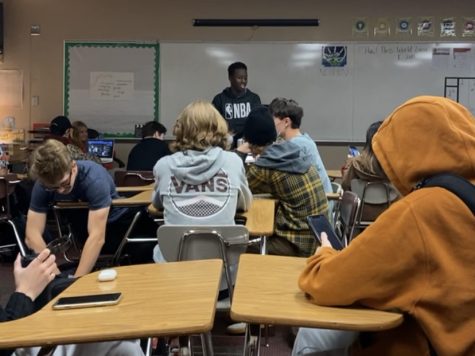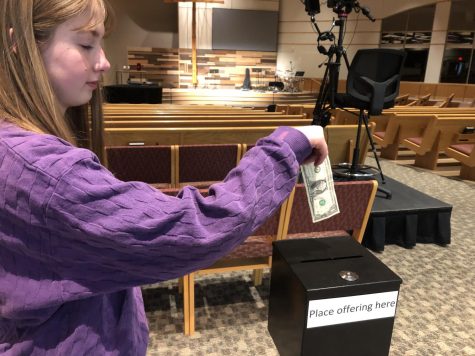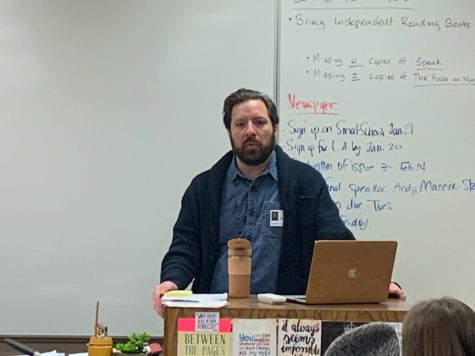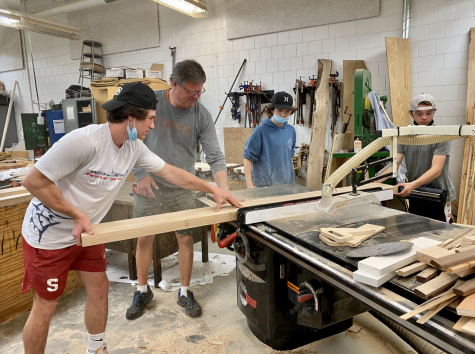Community rallies, save bees
May 3, 2017
Bees and pollinators around the country are declining at an alarming pace due to several human caused factors and Stillwater has had enough. Students, teachers and other community members all over Stillwater are joining the movement to save the furry little pollinators we depend on so much.
Honeybees are a keystone species of many of the biomes in North America, meaning without bees, ecosystems collapse. Not only flowering plants would be in danger, but also things that eat those plants and things that eat things that eat those plants, and yes, honey would be very hard to come by in a bee-less world. It is not just honey bees that we need to worry about though. Butterflies, wasps, flies, bumblebees and other varieties of pollinators are also being decimated.
“The biggest problem we have with bees in the United States right now is with a mite called Varroa Destructor.” Said Reid Gilbertson, a beekeeper who maintains 15 hives less than a mile from the high school. “It’s an invasive species from Asia that was introduced about ten years ago and has caused tremendous problems for honeybees in the US.”
My goal is to get the school to plant some more bee friendly plants around campus. Plants that have more nutrition in their pollen are better for bees.
— Hannah Brown
Gilbertson explained that the Verroa severely weakens hives and can be eradicated with some naturally occurring and harmless chemicals, but many new beekeepers, being hesitant to spray any kind of chemical on their bees, will often inadvertently foster the mites in their hives contributing to the problem.
Pesticides sprayed on agricultural fields in the area around Stillwater are also contributors to the problem. Neo-nitions, which are sprayed on corn and soybean fields, leak into the soil and cause paralysis in honeybees. This significantly weakens the hives leaving them easier targets for other factors such as the Varroa or cold weather.
Celebrities, companies, government officials and students have taken up the cause. Junior Hannah Brown has begun a Save The Bees movement in collaboration with the Youth For Sustainable Solutions (YFSS) Club. She aims to bring the bee problem to the attention of the High School Administration and the population of Stillwater.
“My goal is to get the school to plant some more bee friendly plants around campus. Plants that have more nutrition in their pollen are better for bees,” Brown said.
More of theses plants around the St. Croix Valley would provide more chances for bees to have healthy strong hives after humans decimated much of Minnesota’s natural prairie in favor of large scale agriculture.
Brown said, “We want to see more bee gardens in and around Stillwater, starting at our own school in the ELC.”
“Something as simple as not spraying your apple trees can be immensely helpful,” said Gilbertson. He believes rushing out to buy a honeybee hive probably is not the best way to help unless one is really committed to taking care of the hive which can be a lot of work. Planting flowers, or even just letting plants like clover grow in the yard will also aid bees. Gilbertsion said, “People all want to blame one chemical or company and shut it down and save the bees, but it’s not just one factor it’s a whole bunch, and it won’t get better unless more people take action.”










